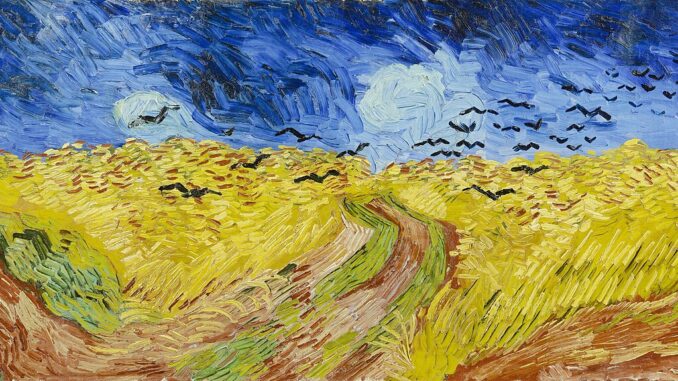
“Fear not, little flock; for it is your Father’s good pleasure to give you the kingdom.” Luke 12:32
In the parable of the rich fool, Jesus warned the rich against eagerness in accumulating wealth. He then warned the poor against anxiety about securing the necessaries of life. Covetousness is of the mind, not of the condition. The poor may be as eager for pence as the rich for pounds. There is anxiety of the cottage, as well as of the counting-house. Some worry not that the barn be full, but that it could become empty. So our Lord admonishes us not to be perplexed about earthly things.
Contrast the smallness of what makes us anxious with the greatness of what God has given. He bestows life without our labor. We breathe when asleep and blood circulates without our consciousness. Is not that life more than the food which supplies it, and that body more than the clothing that clothes it?
The rich are anxious in their abundance. For the feast, “what shall we eat?” Often the crowded wardrobe causes anxiety as to which dress should be selected for some occasion, “with what shall we be clothed?” But many more are anxious about the empty cupboard — how to obtain food for their day’s hunger or clothing to shield the body from the cold. But if God gives life, will He not sustain it — and if He sustains the body, will He not clothe it? “The life is more than meat, and the body is more than raiment.”
God provides for birds and flowers and much more for us. “Consider the ravens,” said Jesus. “They neither sow nor reap; which neither have storehouse nor barn; and God feedeth them: how much more are ye better than the fowls?” God endowed the ravens with keen vision to spy their food, agile wings to reach it and a sharp bill to seize it.
And will He not much more feed you whom He has more richly endowed — you who can, and therefore should, sow and reap and store, with all industry and prudence? But having done your duty in the exercise of such capacities, and having prayed to your Father who much more cares for you — should you be anxious, as if inferior to birds in trusting Him?
Consider also “the lilies how they grow.” Who can understand all the mystery of the life even of a tiny flower? “They toil not, they spin not” and their life is brief; yet they are graceful in form, so beautiful in color, “that Solomon in all his glory was not arrayed like one of these.”
And will God not much more clothe you, who can both toil and spin, and who have the same God who esteems you of far greater value, and has promised that you shall not lack anything that is good?
Who, by all his “worry, can add one inch to his stature?” We may add some years to our age by living a healthy life. But not by anxiety. This shortens life. Some are anxious to increase their apparent height, but who can increase his real height by an inch? How small a thing it would be to add a little to length, either of life or limb, compared with the constant supplies of God for the body’s life. “If you then, are not able to do even that which is least, why are you anxious concerning the rest?”
Anxiety is useless. It does nothing towards attaining its end. It hinders clear thinking, firm purpose, steady perseverance, final success. An old author says — “Don’t fret about what you can’t help, or what you can help. If you can’t help it, fretting won’t mend it. If you can help it, help it, and there will be nothing to fret about.” Exercise caution, diligence, perseverance, prayer. “Work but don’t worry.” Then commit the result to God — “Casting all your care upon Him; for He cares for you.”
The Creator of the birds and flowers is our loving Father. Christ does not say that we can do without these things, and should not wish for them. He was more human than some philosophers — He is more considerate of our present needs than some Christians. He said that we have need of these things, and that our Father knows it — knows that we require food and clothing, the comforts of home and the solace of affection. “He who made the need, pledges the supply.” The very need is evidence that He who caused it considers it. So in the higher need of the soul. If He implants the desire for what is good, He will help us to attain it. The longing for Himself is evidence that He has already given Himself. “Blessed are those who hunger and thirst after righteousness, for they shall be filled.”
Christopher Newman Hall (1816-1902), known as a “dissenter’s bishop” and was a 19th-century English Nonconformist. In the U.S., he supported Abraham Lincoln and the abolition of slavery during the American Civil War. This article is an excerpt from his book “Gethsemane: Leaves of Healing from the Garden of Grief.” His work is in the public domain.
